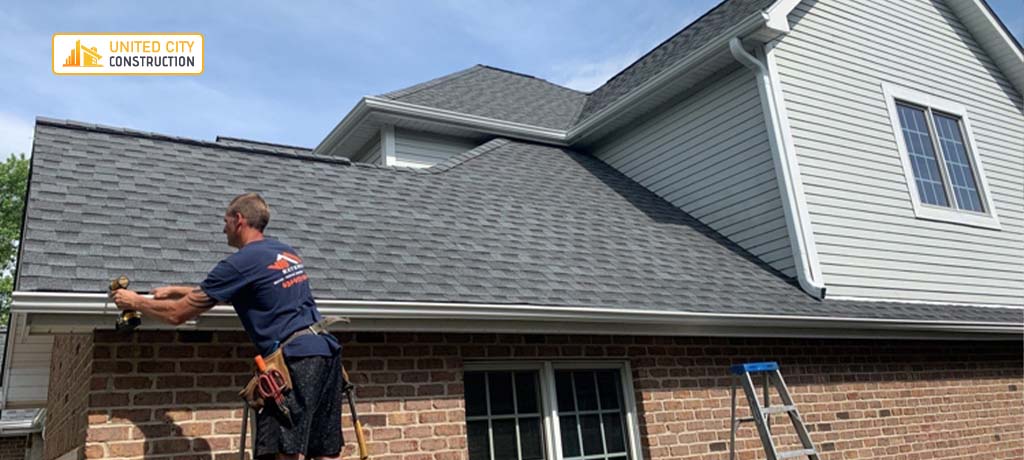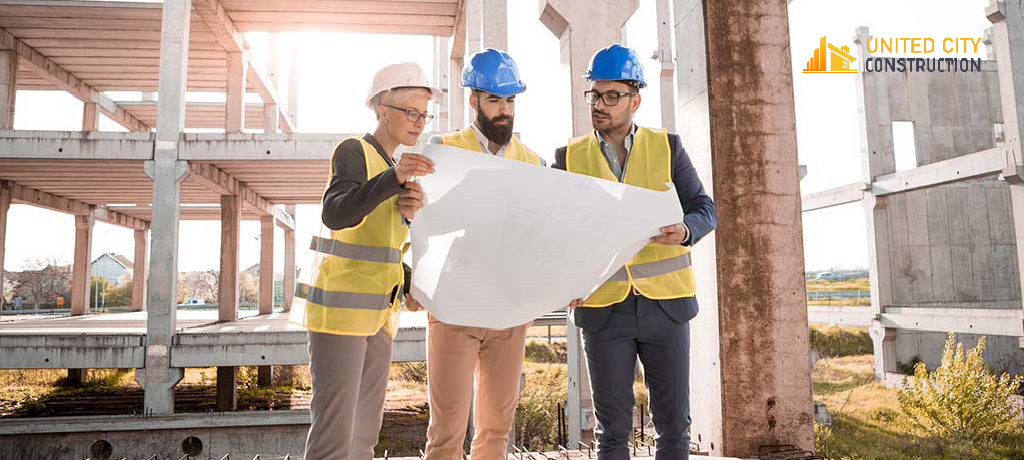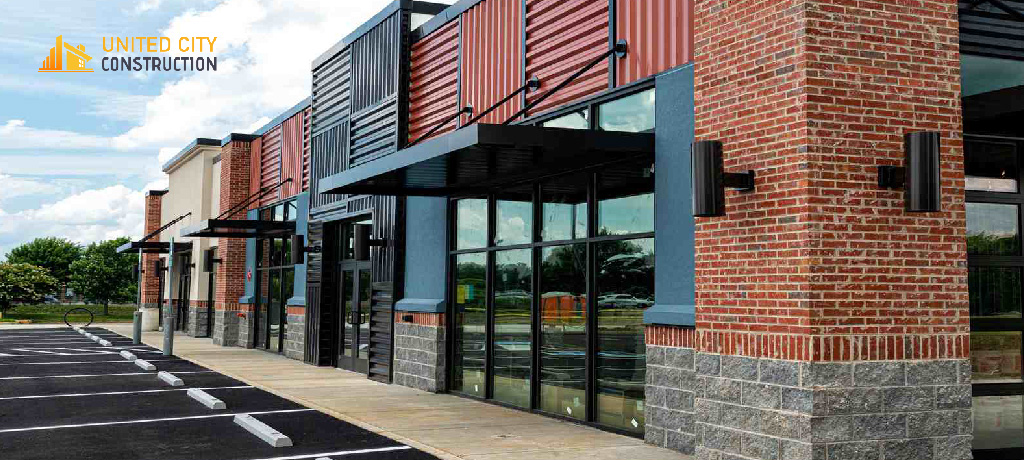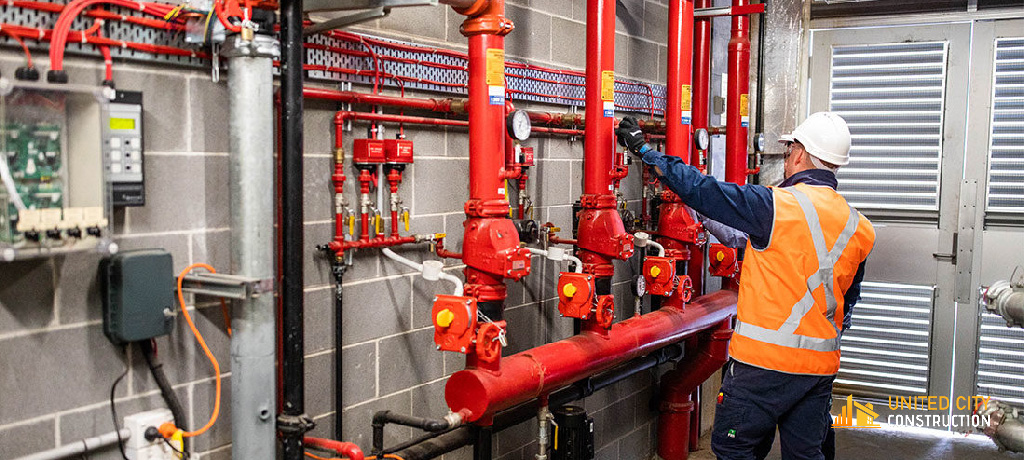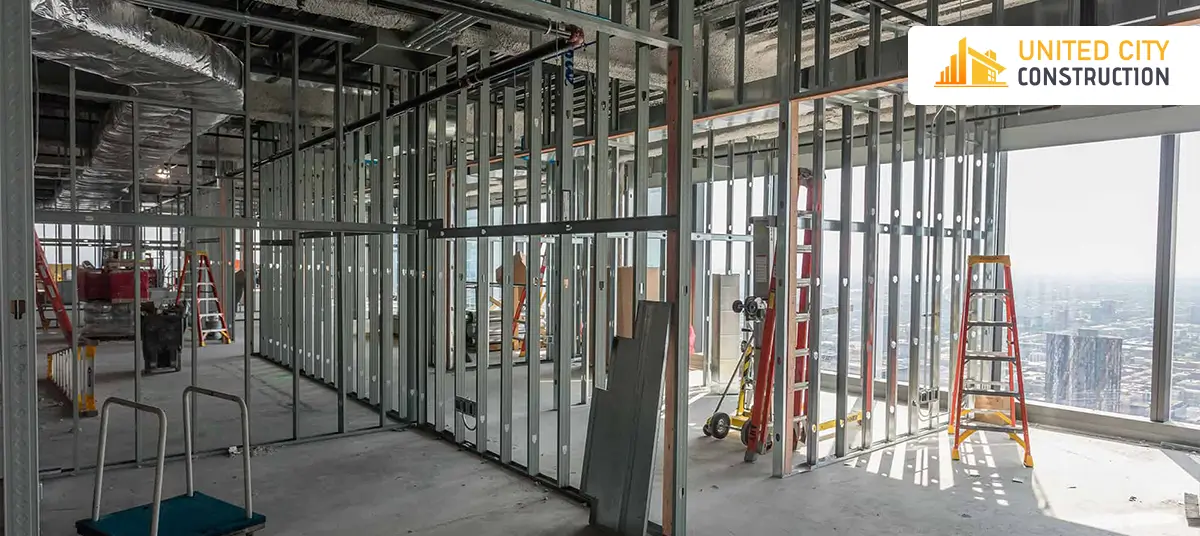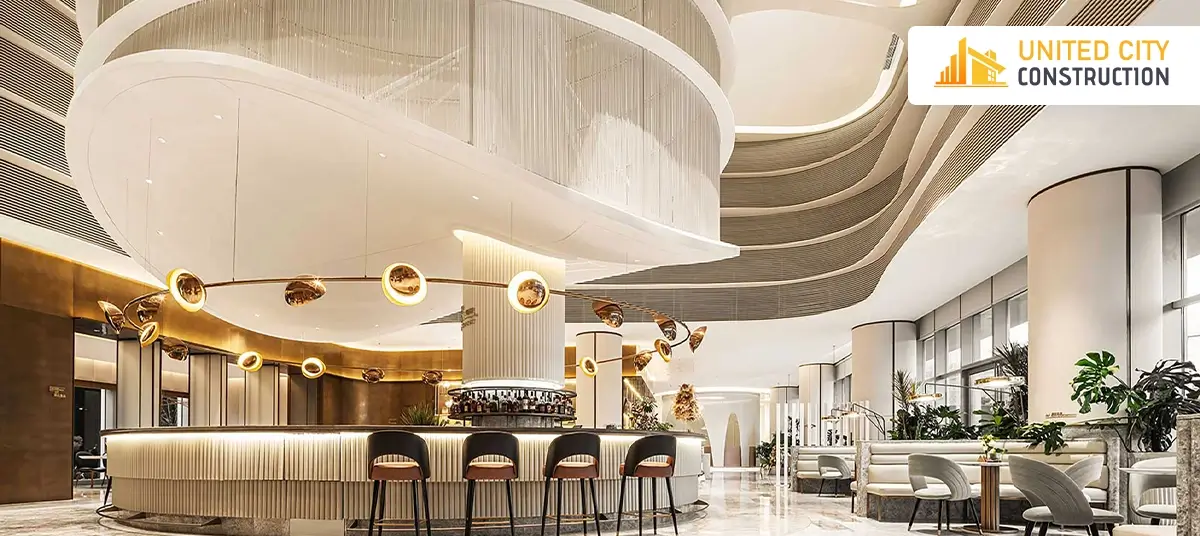Are Hardwood Floors Suitable for Commercial Buildings?
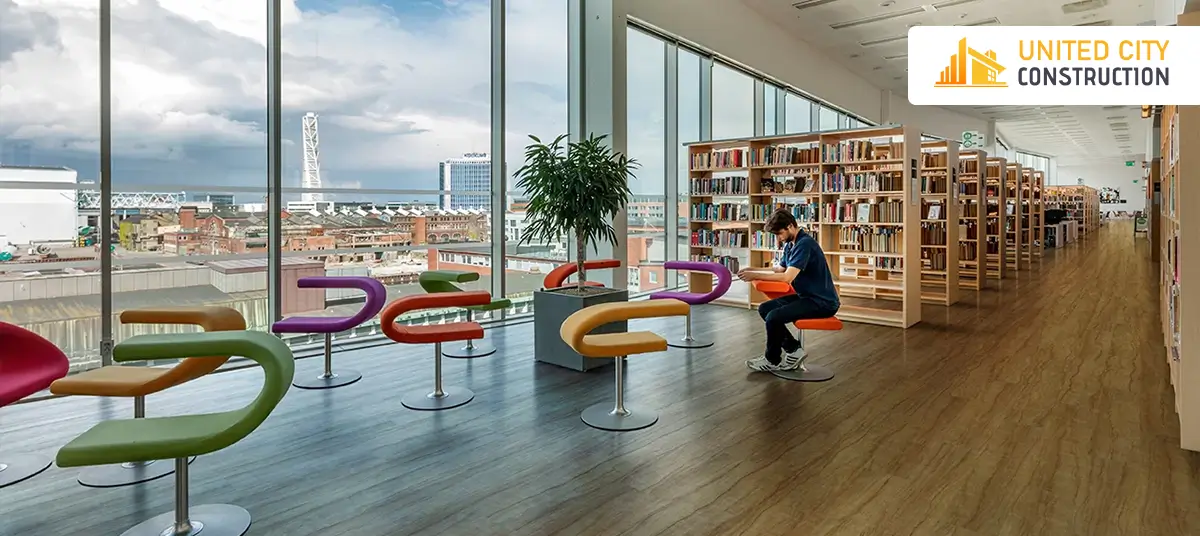
Flooring is a very important aspect of any home, and people prefer hardwood floors because they offer sophistication. But are they suitable for use in commercial structures? Today’s enterprises work hard on space design strategies and creating comfortable business interiors. So hardwood floors can successfully be installed on commercial premises. In this blog post, we’ll be discussing the factors & challenges of using hardwood floors for commercial spaces. We shall also review how other issues like traffic level maintenance and budgetary constraints, among others, will determine the choice of hardwood. Helping businesses decide how they want their commercial buildings constructed, the commercial contractor or even the commercial flooring contractor is needed.
Factors to Consider Before Choosing Hardwood for Commercial Buildings
Several factors should be considered when determining the proper applicability of hardwood floors to a commercial building. All these factors will assist in deciding whether to use hardwood and answering some necessary questions to ensure that the investment will match the need that one may have for the space.
Location and Climate
Indoor vs. Outdoor Areas: This type of flooring is most appropriate for homes, offices, or other interior spaces. Some drawbacks are associated with the use of hardwood, among them being that it may not do very well in regions where there is high humidity or large temperature variations.
Climate Considerations: Still, hardwood is vulnerable to warping or expansion in areas with high humidity or significant temperature fluctuations. A commercial contractor can determine whether the climate in the location will affect hardwood utilization.
Traffic Levels
Foot Traffic: Some areas, such as the hallways and the lobby, maybe more frequently used than others. Also, one must consider the type and volume of traffic that is to be expected in the specific area to be floored with hardwood since not all species are created equal.
Wheeled Traffic: Carts and equipment with wheels used in fast-moving areas need to be on hard surfaces. A hardwood floor can be used in this manner but may require other treatments or be very sensitive to such usage.
Aesthetic and Design Goals
Visual Appeal: Another advantage of hardwood floors is their ability to provide a very classy and professional touch to commercial rooms. Think about what you want to achieve in terms of design and the image that you intend to portray.
Design Flexibility: A broad category of hardwood floors is available in many types, surface treatments, and colors to meet the outcome of the business environment.
Durability and Longevity
Wood Species: Not all hardwoods are equally durable, so some species are more suitable for outdoor constructions than others. In areas where furniture will be heavily used, for instance, offices, softer woods such as pine may not be ideal compared to a harder variety such as oak or maple.
Wear and Tear: Determine the hardwood's ability to withstand common daily usage. A commercial flooring contractor can advise on the endurance of different hardwoods.
Professional Consultation
Expert Advice: It is recommended that you seek advice from a commercial contractor or commercial flooring contractor so that they can give the best advice based on the situation surrounding your project.
Installation and Maintenance: Professional consultation will also help one determine the right installation methods and ways of maintaining the floors and making them durable.
Considering these will help you decide whether hardwood flooring can be used in your commercial building and whether the investment you are likely to make will suit both its functionality and physical appearance.
Challenges of Using Hardwood Floors in Commercial Spaces
However, some difficulties are associated with using hardwood on commercial premises, which may not be evident on other types of floors. Knowledge of these challenges will enable you to make informed decisions about whether to use hardwood in your building.
Initial Cost and Installation
Higher Upfront Costs: One of the most essential facts about hardwood floors is that they are relatively expensive compared to covers such as vinyl or carpet. The cost of the materials and the installation is calculated, which could be highly costly.
Complex Installation: Installation calls for professional personnel to ensure the equipment is well-fixed. A commercial flooring contractor is crucial because it guarantees that the flooring is installed correctly and does its job adequately. This can increase costs and make the work more complicated, contributing to the overall cost and difficulty of the job.
Wear and Tear: One concern for wooden floors is that they tend to get scratched by heels, shoes, furniture, and other equipment that may be moved over them. This can be a significant issue in areas with high-traffic interactions, such as business-to-consumer and service industries.
Maintenance and Repair: However, hardwood floors can easily be sanded to remove scratches or the appearance of dents, although this process has to be done periodically and does not always restore the floors' original texture.
Water and Moisture Damage
Vulnerability to Moisture: It’s porous, especially the factory-finished product, and can be ruined by anything ranging from water spills to leakage or even condensation. The most common problems associated with water are warping, cupping, and the formation of stains where there is contact with water.
Climate Control: To avoid mold and other moisture-related problems, humidity should be controlled. This may lead to extra cooling or heating and more frequent monitoring of whether installing more climate control units is necessary.
Maintenance Requirements
Regular Cleaning: Hardwood floors need to be cleaned frequently to remain in good condition and not become damaged. This involves sweeping, vacuuming, and occasionally mopping the floor with hardwood floor-compatible products.
Periodic Refinishing: After some time, the floors may require recoating to maintain their elegance. This entails planning, scraping the old finish off, and applying a new one, which can irritate residents and be expensive.
Durability Concerns
Long-Term Performance: Hardwood is rather durable yet not always appropriate for areas with heavy traffic. The durability of a hardwood floor differs with the type of wood, the type of finish used, and the methods used in maintaining the floor.
Foot Traffic Impact: It is also worth noting that areas that are walked on frequently, such as commercial buildings, may deteriorate faster on the hardwood floors. One has to be very careful when selecting a hardwood species and the finish needed for such an environment.
Adaptability to Changing Needs
Design Flexibility: Unlike the other types of flooring, hardwood floors are less versatile to accommodate rooms that may have periodic design alterations or function upgrades. Other things that can be thought-provoking are modular carpets or vinyl floors, which provide more freedom for design and functionality.
This will assist you in evaluating the advantages and disadvantages of having hardwood flooring in your commercial premises. For further assistance on how to overcome these problems, seek advice from a commercial contractor or a commercial flooring contractor.
Types of Commercial Spaces Where Hardwood is Suitable
Wooden flooring, especially hard floors, is commonly used in commercial buildings because it’s durable, beautiful, and classy. Here are some types of commercial spaces where hardwood is particularly suitable.
Office Spaces
Lobbies and Reception Areas: Hardwood floors give any facility a warm and more professional feel, which is appropriate for creating a good first impression for clients and visitors.
Executive Offices: There exists a touch of authenticity with hardwood, and its classic appearance makes it appropriate to install it in some of the most critical regions.
Conference Rooms: The carpet, on the other hand, makes the environment relaxed, but a hard wooden floor is preferred in meeting areas for a more corporate appearance.
Retail Stores
Boutiques and High-End Retail: Hardwood makes a shopping trip more enjoyable, especially in shops that target selling quality goods.
Showrooms: If the place is designed to exhibit certain items, such as furniture, automobiles, or home accessories, hardwood gives it a somewhat plain yet official appearance.
Hospitality Venues
Hotels: Hardwood is warm and elegant and can be used in lobbies, guest residence rooms, and banquet halls.
Restaurants and Cafes: Oak is a versatile hardwood suitable for dining establishments with rustic, modern, or traditional themes. It is also a versatile hardwood CLT, and it can be treated to improve its stain and spill resistance.
Health and Wellness Centers
Spas and Salons: First, hardwood floors bring calmness and a natural feel to a space, perfect for relaxation and health areas.
Yoga and Fitness Studios: They ensure that it is safe for individuals to stand or walk since they do not slip off the floor, and they are easy to clean and maintain.
Educational Institutions
Libraries: Such attributes of the hard work surface, like quiet characteristics and denseness of the product, make it ideal for library settings where appearance and sound absorption are vital.
Lecture Halls: Many areas that are most used are best served by the addition of hardwood flooring since it also contributes to the general feel of the place.
Cultural and Community Spaces
Art Galleries and Museums: Hardwood is ideal for these spaces because it is not too imposing, dominating the exhibit and other installations that may be placed there.
Event Venues: When it comes to wedding venues that also act as conference centers or community halls, hardwood is the answer as it looks stunning and lasts long.
Conclusion
Installing hardwood floors will bring beauty, sturdiness, and versatility to commercial areas. Whether being used in an office setting or a retail store, in a hotel, or in an art gallery, hardwood can offer that classy appeal while, more importantly, being able to withstand the kind of traffic that these buildings call for. Before making a decision, it is advisable to consult a commercial contractor or flooring contractor since they have more information on the product and can help you determine your choice based on functionality and design. For hardwood flooring in commercial buildings to be most effective, it should be properly installed and well-maintained.
To consult with a more professional approach and obtain professional flooring solutions for your commercial building, contact United City Construction. Our team will gladly assist in the decision-making process regarding the choice of systems and guarantee a prompt and correct installation of our products. Call us today for a free consultation with one of our sales representatives and learn how we can transform your business settings with beautiful hardwood flooring.


